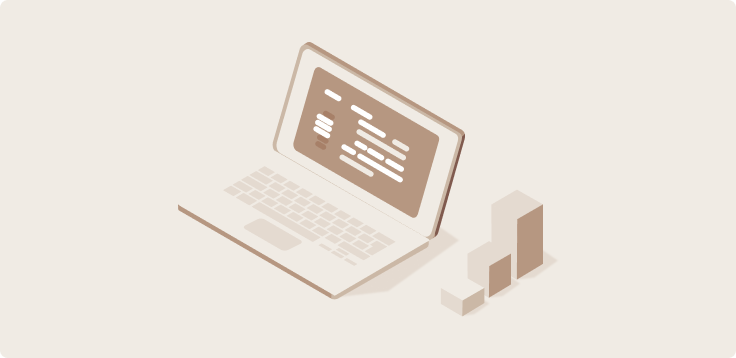Aug 23, 2024
What is a CAPTCHA, and What Does It Do?

You’ve probably come across those moments online when you’re asked to prove you’re not a robot. Maybe it’s deciphering some squiggly letters, identifying every traffic light in a grid, or selecting all the boxes with crosswalks. If you’ve ever wondered why the internet puts you through this seemingly bizarre test, you’re not alone. Enter CAPTCHA—a gatekeeper to the online world. Let’s explore what CAPTCHAs are, why they exist, and how proxies can help you smoothly bypass these digital hurdles to unblock content.
What Exactly is a CAPTCHA?
First things first, CAPTCHA stands for "Completely Automated Public Turing test to tell Computers and Humans Apart" (bet you didn’t know that). It’s a bit of a mouthful, but in simpler terms, it’s a handy little tool designed to separate the real humans from bots. Bots, those pesky automated programs, can cause all sorts of trouble online—think spamming comment sections, or attempting to brute-force their way into accounts. CAPTCHAs are the internet’s way of asking, “Hey, are you human?” before letting you proceed.
Why Do We Need CAPTCHAs?
Imagine a world where bots run wild. They’d be everywhere—snatching up concert tickets before you can blink, flooding websites with fake sign-ups, and generally making life on the web much less fun. CAPTCHAs step in as the first line of defense against this chaos. By presenting tasks that are easy for humans but tough for bots (like recognizing images or solving simple puzzles), CAPTCHAs help maintain the balance and keep the internet a safer place.
But while CAPTCHAs are vital, they can also be a bit of a speed bump in your online experience, especially when you’re trying to access content quickly. This is where proxies come in, offering a way to unblock content and navigate around these digital roadblocks.
The Role of Proxies in Unblocking Content
Proxies are like the Swiss Army knife of the internet—they’re versatile, handy, and can get you out of a pinch. Essentially, a proxy is an intermediary server that routes your internet traffic through its own IP address before it reaches the destination website. This can be incredibly useful for several reasons:
1. Bypassing Geographic Restrictions: Some content is only available in certain regions. With a proxy, you can appear as though you’re browsing from a different location, unlocking access to the content you want.
2. Anonymity: Proxies help keep your browsing habits under wraps by masking your real IP address. This can be beneficial for privacy or simply avoiding targeted ads.
3. Navigating Around CAPTCHAs: Here’s where it gets interesting. Some CAPTCHAs are triggered based on the IP address or browsing patterns, especially if a site suspects unusual activity (like multiple login attempts). By using a proxy, you can change your IP address and reduce the likelihood of encountering CAPTCHAs. Proxies can make your browsing experience smoother, helping you unblock content without jumping through as many hoops.
Types of CAPTCHAs and How Proxies Help
CAPTCHAs come in various forms, and understanding how they work can help you appreciate the role of proxies even more.
1. Text-based CAPTCHAs: These are the classic ones where you type out distorted letters and numbers. While straightforward for humans, bots struggle with them. Proxies can help if your IP gets flagged by a site, reducing the chances of encountering these CAPTCHAs frequently.
2. Image-based CAPTCHAs: These ask you to select images that match a certain description, like identifying all the boats in a grid. If a site bombards you with these CAPTCHAs due to high traffic or suspicious activity, a proxy can give you a fresh IP, helping you avoid the hassle.
3. Audio CAPTCHAs: Designed for visually impaired users, these involve listening to a sequence of numbers or words and typing them out. If your IP is flagged, you might be asked to complete these more often. Proxies can help reduce the frequency by making your traffic appear more natural.
4. ReCAPTCHA: Google’s ReCAPTCHA is one of the most common, often requiring users to click on checkboxes or identify objects in images. ReCAPTCHA adapts to your browsing behavior, so if it suspects you’re a bot, it might increase the difficulty. Proxies can help by routing your traffic through different IPs, making it less likely that you’ll be flagged.
Choosing the Right Proxy for the Job
So by now we know, not all proxies are created equal, and choosing the right one can make a big difference in how effectively you can unblock content and sidestep CAPTCHAs.
- Residential Proxies: These are IP addresses assigned to real devices by ISPs. They’re less likely to be flagged as suspicious, making them ideal for bypassing CAPTCHAs and accessing restricted content.
- Datacenter Proxies: These are cheaper and faster but might be more easily detected by websites, especially those that employ strict CAPTCHA protocols. However, they’re still useful in many cases, particularly for general browsing or accessing less protected content.
- Rotating Proxies: These proxies change your IP address with each request or at set intervals. They’re excellent for web scraping or situations where you need to make multiple requests without triggering CAPTCHAs.
So really, what’s all the fuss about?
CAPTCHAs are an essential part of keeping the internet safe and secure, but they can also be a bit of a nuisance when you’re just trying to browse smoothly. Thankfully, proxies offer a clever workaround, helping you unblock content and sail past CAPTCHAs with ease. Whether you’re using a residential, datacenter, or rotating proxy, the key is to choose the right tool for the job. So the next time you’re faced with a CAPTCHA challenge, remember that a good proxy might just be your ticket to a smoother, CAPTCHA-free experience.
You might like these, too
Price Monitoring · 5 minutes read
Data Collection · 4 minutes read
Data Collection · 5 minutes read
